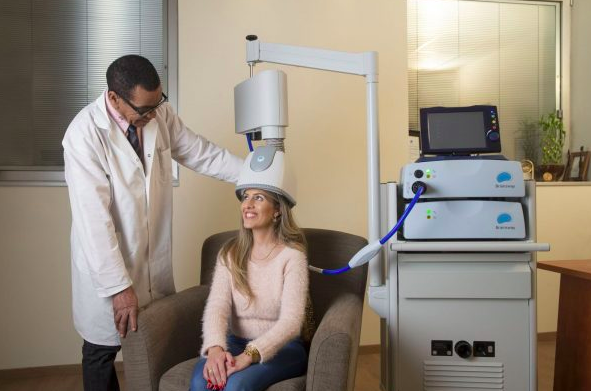Israeli medtech firm aims to tackle depression, opioid use with noninvasive brain stimulation
About 4.5 million Americans have treatment resistant depression. Meaning the first 2+ rounds of medication management and therapy have not been sufficiently helpful. Per the article linked, deep TMS not only offers a superior remission rate, it is quite user friendly. At only 20 minutes a session, people can literally attend a treatment session during their lunch break and report back to work. There is no need for anesthesia, hospitalization, or even a recovery time. The treatment regimen consists of 5 days a week for 4 weeks, then 2 days a week for the remaining 8 weeks.
Testimonials from patients and physicians alike are accumulating rather quickly. Michelle is a patient who got her treatment at the Milford Clinic, “It changed my whole life. I hope that people see me and know there’s an answer, there’s a solution. What medication and therapy couldn’t do for me, deep TMS did.”
Dr. Sachin Mehta says, “This has absolutely exceeded my expectations.”
Even more recently, deep TMS also got FDA clearance for the treatment of OCD. There is another multicenter study undergoing investigating the use of deep TMS for smoking cessation. It is believed that this same concept may be able to be used for other addictions as well including alcohol, opiates, cocaine, and more. Also, deep TMS is being investigate for use in treatment PTSD.

